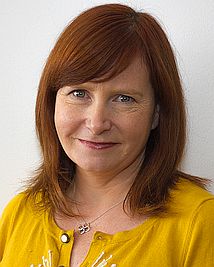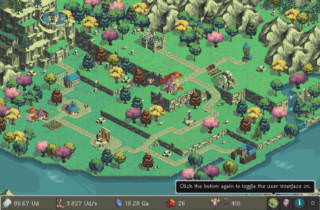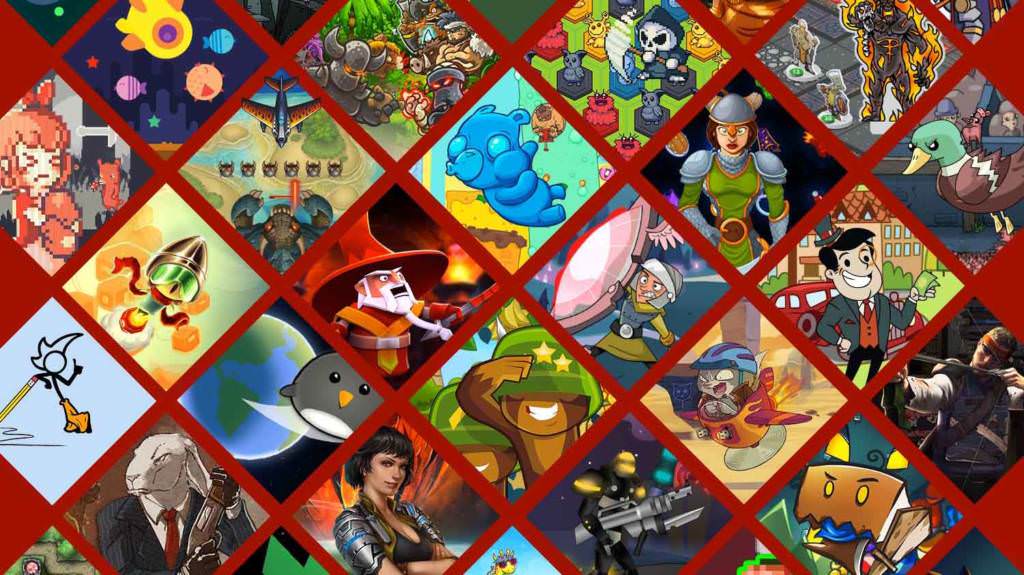Kongregate is growing at a phenomenal rate. The publisher, famous for its browser-based and mobile games, is largely credited for popularizing idle games such as AdVenture Capitalist. That caught the attention of Swedish entertainment company Modern Times Group (MTG), which acquired Kongregate from GameStop in June in a deal worth $55 million, adding to a video game portfolio that includes the ESL, DreamHack and Innogames.
Since then, the publisher hasn’t wasted any time furthering its goal of helping independent developers succeed across multiple platforms while growing in the PC and console gaming space. Earlier this year, the company launched its first original title, a retro-arcade styled game GRIDD: Retroenhanced on Steam before bringing it to Xbox One in July. Later this summer, Kongregate is launching Peter Molyneux’s The Trail: Frontier Challenge and Super Fancy Pants Adventure (based on the popular web game franchise) on Steam for PC gamers to enjoy.
But it’s Wednesday’s announcement of a $10 million PC and console fund to expand its cross-platform initiatives that really demonstrates Kongregate’s long-term plans. The fund, which will be used to develop and promote both paid and free-to-play games, “provides independent developers customized marketing, financial assistance and production support,” according to a statement.
AListDaily spoke with Emily Greer, co-founder and CEO of Kongregate, about the acquisition, its newly announced fund and how the publisher—which has a strong presence in the browser and mobile gaming spaces—is taking on the PC and console markets.

What led to the acquisition by MTG?
They’re very interested in building up a presence in gaming, and they were looking for a someone who had strong skills publishing and distributing games to help bring their portfolio together. They looked at the market and thought that we were the best fit, and we had been exploring our future with GameStop for a while in terms of figuring out the best situation for us. After many months of talks, MTG came to the conclusion that this was a great fit on all sides, and one that had interesting partnership opportunities between GameStop and MTG.
How is MTG in a better position to help Kongregate further its goals compared to GameStop?
If you’ve been following GameStop’s diversification strategy over the past few years, you can see that they’ve had a lot of success in diversifying on the retail side and with their technology brand division—which includes the ThinkGeek and Spring Mobile brands. So, GameStop has been focusing on a retail strategy, playing to their strengths as a retailer in the gaming landscape, and the things that we’re doing with digital, mobile and free-to-play game distribution is a little distant from their core. It was better aligned with MTG, where this kind of content development is a core strategy. Part of our strategy is also in doing some acquisitions within our portfolio for first-party games, which is of great interest to MTG but is of less interest to GameStop. In short, our future strategy is more closely aligned with MTG’s core strategy than GameStop’s.
Despite its esports presence and its acquisition of Innogames, MTG is primarily known as a media brand. How does that fit with Kongregate’s brand?
They appreciate and understand content development, in addition to working with licensing and third-parties for distribution. As a media company, they’ve said that gaming is the future of media and sports consumption, which is how they got into esports—they own ESL, DreamHack and Innogames. MTG as a brand is a relatively quiet one, but our interest in helping content creators succeed is very much aligned.
Will the acquisition impact games that are currently in development?
They have very little impact on our day-to-day [operations]. We were relatively independent within GameStop, and we continue to be quite independent under MTG. Near-term projects are going to be minimally affected by this change, but where we are going to see differences and benefits are in longer-term investments, including the $10 million fund into PC and console games that we just announced.
Was the $10 million investment fund created as part of the MTG acquisition?
They’re related in that our desire to broaden the types of games that we’re providing was of interest to MTG in the acquisition. We had been planning smaller-scale investments within GameStop, and had already started planning on a few games, but the acquisition enabled us to take a longer-term investment approach.
Why focus on investing in the PC and console space instead of putting more toward mobile?
This does not in any way come at the cost of mobile—we’re continuing to invest there. But overall, Kongregate’s mission is to help independent developers succeed. We’ve been working on browser and mobile games, but there has been a real explosion in PC game development for independent developers. We felt that—in order to live up to our mission and serve our players wherever they like to play—it was important to look at this market.
What are the challenges of standing out in the PC and console space compared to mobile and browser gaming?
I’d say that on the PC side, it’s similar to mobile in that it’s a crowded marketplace. In a situation like that, existing audiences and marketing become as important as quality when making a game successful. Where we saw an opportunity was to translate some of the skills and audience we built up on mobile and browsers to help developers spread the word about their games in that crowded market. Consoles are a little different—they’re not as crowded—but the barriers to entry (certifications, QA, and general knowledge) are much larger. That’s another way that a publisher can help. Generally, having somebody that’s on your side in crowded and difficult markets—someone who has been through it before and knows what you don’t—is important to the success of the game. It’s hard for any individual developer to keep up with the market and understand the best ways to bring attention to their games. What they knew before may have already changed.
Kongregate released its first original title, GRIDD: Retroenhanced for PC and Xbox One. What did you learn from launching that game?
I think one of the things we learned was the hurdles of getting through console publishing and all the parts it takes to get that done, which is quite rewarding. GRIDD was featured by Xbox and it has a high Metacritic score. The Steam algorithm is still something that we’re trying to understand and we’re learning more about it every day. We also launched Realm Grinder on Steam, which was a surprise success in terms of concurrent players. I think it’s been in the top 100 for concurrent players on Steam. Steam is a very interesting market and one that we’re continuing to explore—figuring out the best ways to promote games and how different types of momentum and marketing matter.
There are quite a few multiplatform games in Kongregate’s portfolio, including AdVenture Capitalist. Does success on one platform usually promote awareness for the game on another?

Absolutely. We see that most specifically between mobile and browser, where we have the largest presence, but we had a recent game called Bit Heroes, which is developed by Juppiomenz and launched on Kongregate.com last fall. We signed them to a mobile publishing deal and it released to good success on mobile in May. A very interesting thing happened, which was that revenue from the browser version, which had been steady for months, quadrupled after the mobile version launched. We think it was mostly because a lot of players discovered the game on mobile and then decided to jump over the browser version. We want to sustain any situation where players have a preferred platform. Another example is how after Realm Grinder launched on Steam, we saw an increase in installs and revenue for that game on mobile. After the Xbox One launch of GRIDD, we saw an increase in Steam/PC numbers. Sometimes there’s nesting going on, especially with a simultaneous launch, so you can’t always tell what’s cause and effect, but we see definite benefits and increases on various platforms based on activities and launches happening on another. We also see games that do better in one context or another. Realm Grinder is a web game that we took to mobile and it did well, but it has really outperformed on Steam. There’s just something about that game that’s a natural fit for Steam and less so for mobile, where the case was reversed for other games. So, the more platforms you take a game to, the more you can discover its natural habitat.

